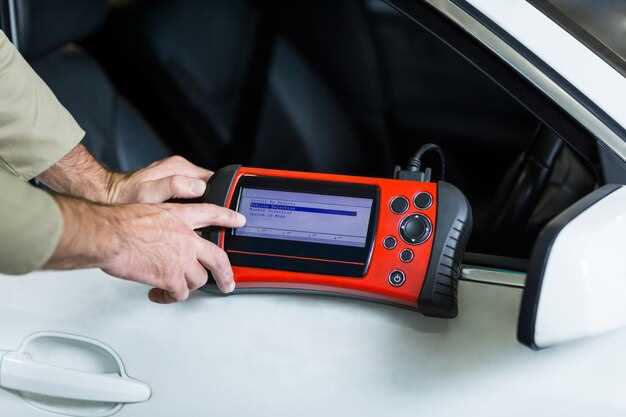
In the competitive world of automotive performance, tuning has become a popular avenue for car enthusiasts seeking to unlock the full potential of their vehicles. Among various modifications, performance chips stand out as a crucial element in enhancing engine output, particularly for brands like BMW. These chips work by reprogramming the vehicle’s Engine Control Unit (ECU), allowing for improved fuel maps, ignition timing, and overall engine efficiency.
By installing a performance chip, drivers can expect noticeable gains in horsepower and torque, as the modified ECU optimizes engine parameters that factory settings might limit. The mod process usually involves a straightforward installation, often without requiring extensive mechanical knowledge, making it an accessible enhancement for many BMW owners.
However, the effectiveness of these chips can vary depending on the model and year of the BMW, as well as the specific chip used. Understanding the nuances of your vehicle’s performance capabilities and the potential gains from tuning with a performance chip is essential for anyone considering this modification. In this article, we will delve into how performance chips function, their potential benefits, and important considerations before proceeding with this type of engine mod.
Understanding the Technology Behind BMW Performance Chips

BMW performance chips, commonly referred to as mods, are designed to enhance engine output by optimizing the vehicle’s Engine Control Unit (ECU) settings. The ECU is the brain of the vehicle, managing fuel injection, ignition timing, and various other parameters crucial for engine performance. By modifying the ECU’s programming through the installation of a performance chip, drivers can achieve noticeable improvements in horsepower and torque.
Performance chips work by recalibrating the factory settings of the ECU. This recalibration allows for a more aggressive fuel mapping, enabling the engine to utilize more air and fuel efficiently. The result is an increase in overall power output. Additionally, these chips often enhance throttle response, providing a more dynamic driving experience.
Installation of a performance chip is typically straightforward, involving the connection of the chip to the ECU’s interface. Some modifications may require specific tuning software to ensure optimal performance and compatibility with other aftermarket parts. It is essential to select a chip that is tailored for the specific BMW model to ensure compatibility and to prevent potential damage to the engine.
In summary, BMW performance chips utilize advanced technology to modify the ECU settings, leading to enhanced engine performance. By understanding how these chips interact with the vehicle’s systems, enthusiasts can make informed decisions about performance upgrades that align with their driving objectives.
Comparing Performance Gains: Real-World Data on Tuning Chips

When evaluating the effectiveness of performance chips in enhancing BMW engine output, real-world data plays a crucial role. Many enthusiasts have turned to ECU tuning solutions as a method to unlock additional horsepower and torque. Performance chips aim to modify the factory settings of the engine’s ECU, adjusting fuel maps, ignition timing, and other parameters to maximize performance.
Several independent tests and user experiences offer insights into the actual gains achieved through tuning mods. It is common to see horsepower increases ranging from 10% to 30%, depending on the specific BMW model and the type of performance chip used. For instance, a BMW 335i might experience a boost from 300 horsepower to 350 horsepower after proper tuning, showcasing significant enhancement in acceleration and overall responsiveness.
The type of modifications applied by tuning chips also influences the extent of performance gains. Chips that provide a comprehensive remap of the ECU can yield better results than basic plug-and-play options. Advanced tuning chips often allow users to customize settings further, catering to specific driving styles or conditions, which can lead to optimized performance and efficiency.
Furthermore, community feedback and dyno results consistently show that cars equipped with tuning chips not only improve output but also enhance throttle response and driving dynamics. However, it is essential to consider the potential impact on reliability and manufacturer’s warranty when undertaking such mods. Appropriate tuning is key to ensuring that the modifications contribute positively to the vehicle’s performance without compromising its long-term operability.
In conclusion, real-world data underscores that performance chips can indeed enhance BMW engine output, with tangible benefits reported by users. A well-matched tuning solution can elevate your driving experience while tapping into the latent power of your BMW.
Installation and Maintenance: Ensuring Optimal ECU Mod Performance
Proper installation of an ECU mod is crucial for maximizing engine output and performance. Before beginning the installation process, ensure that you have the appropriate tools and the correct ECU tuning software for your specific BMW model. Follow all manufacturer guidelines meticulously to avoid potential damage to the engine or electrical systems. After the physical installation, the tuning software must be used to recalibrate the vehicle’s settings to align with the new performance parameters provided by the mod.
Regular maintenance is essential to keep the ECU mod functioning optimally. This includes periodic checks of connections, ensuring there are no loose wires, and validating that the software remains updated. Outdated tuning software can lead to inefficiencies or even damage to the engine, as newer software may include important fixes or enhanced performance features. Monitoring engine performance after installation is also vital; any irregularities should prompt an immediate check to the ECU settings and vehicle diagnostics.
Additionally, consider using data logging tools that capture real-time performance metrics. Analyzing this data can reveal how well the ECU mod is performing and whether further tuning adjustments are necessary. If issues arise, consult with professionals or forums that specialize in BMW tuning for expert advice on troubleshooting and enhancing ECU performance.
In summary, successful installation and ongoing maintenance of your ECU mod play a significant role in optimizing your BMW’s performance. Adhering to installation best practices and regularly updating and monitoring your tuning settings will ensure that your vehicle operates at its peak capability.
